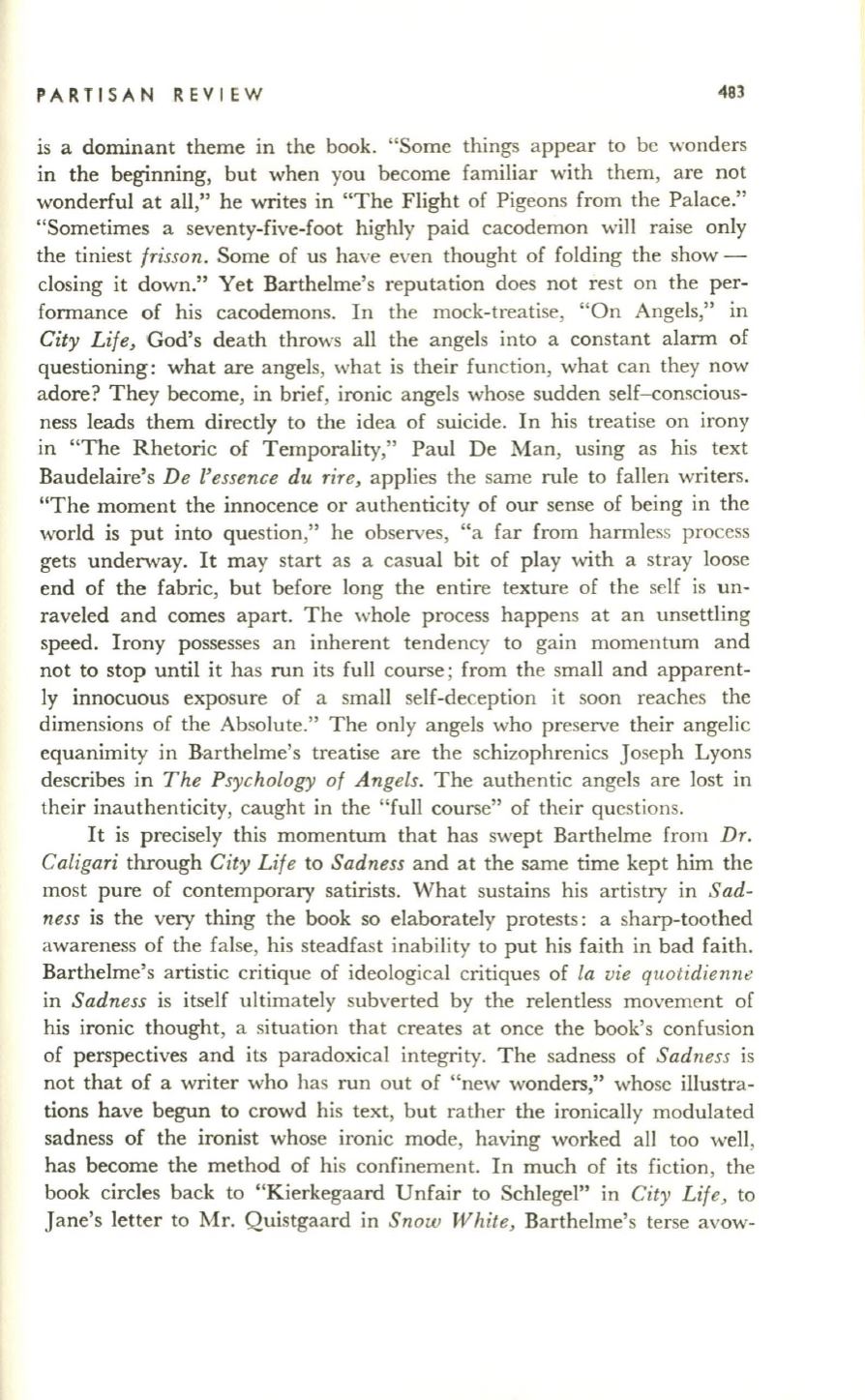
PARTISAN REVIEW
483
is a dominant theme in the book. "Some things appear to bc wonders
in the beginning, but when you become familiar with them, are not
wonderful at all," he writes in "The Flight of Pigeons from the Palace."
"Sometimes a seventy-five-foot highly paid cacodemon will raise only
the tiniest
frisson.
Some of us have even thought of folding the show–
closing it down." Yet Barthelme's reputation does not rest on the per–
formance of his cacodemons. In the mock-treatise, "On Angels," in
City Life,
God's death throws all the angels into a constant alarm of
questioning: what are angels, what is their function, what can they now
adore? They become, in brief, ironic angels whose sudden self-conscious–
ness leads them directly to the idea of suicide. In his treatise on irony
in "The Rhetoric of Temporality," Paul De Man, using as his text
Baudelaire's
De ['essence du rire,
applies the same rule to fallen writers.
"The moment the innocence or authenticity of our sense of being in the
world is put into question," he observes, "a far from harmless process
gets underway.
It
may start as a casual bit of play with a stray loose
end of the fabric, but before long the entire texture of the self is un–
raveled and comes apart. The whole process happens at an unsettling
speed. Irony possesses an inherent tendency to gain momentum and
not to stop until it has run its full course; from the small and apparent–
ly innocuous exposure of a small self-deception it soon reaches the
dimensions of the Absolute." The only angels who preserve their angelic
equanimity in Barthelme's treatise are the schizophrenics Joseph Lyons
describes in
The Psychology of Angels.
The authentic angels are lost in
their inauthenticity, caught in the "full course" of their questions.
It is precisely this momentum that has swept Barthelme from
Dr.
Caligari
through
City Life
to
Sadness
and at the same time kept him the
most pure of contemporary satirists. What sustains his artistry in
Sad–
ness
is the very thing the book so elaborately protests: a sharp-toothed
awareness of the false, his steadfast inability to put his faith in bad faith.
Barthelme's artistic critique of ideological critiques of
la vie quotidienne
in
Sadness
is itself ultimately subverted by the relentless movement of
his ironic thought, a situation that creates at once the book's confusion
of perspectives and its paradoxical integrity. The sadness of
Sadness
is
not that of a writer who has run out of "new wonders," whose illustra–
tions have begun to crowd his text, but rather the ironically modulated
sadness of the ironist whose ironic mode, having worked all too well,
has become the method of his confinement. In much of its fiction, the
book circles back to "Kierkegaard Unfair to Schlegel" in
City Life,
to
Jane's letter to Mr. Quistgaard in
Snow White,
Barthelme's terse avow-


